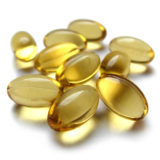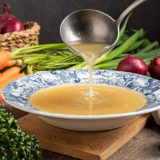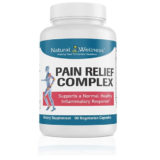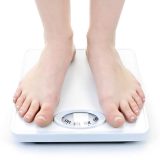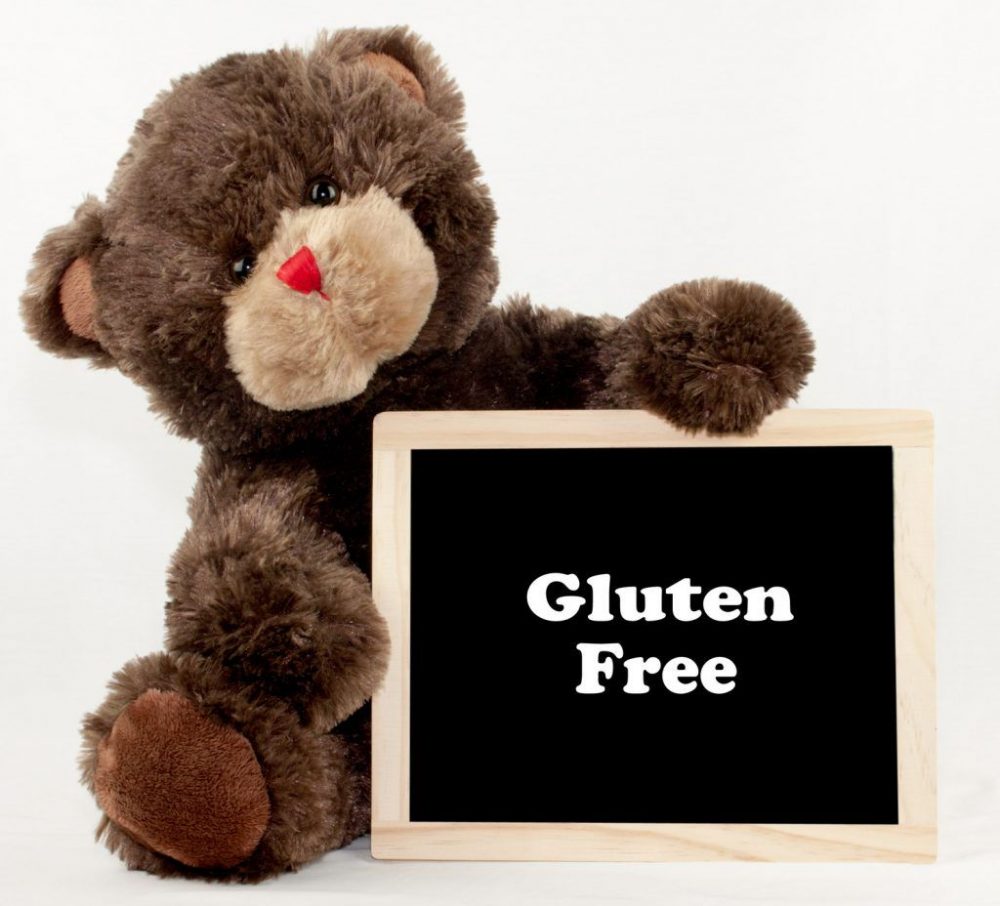

Rotund comedian, John Pinette (JP), does a funny bit about giving up gluten. Here’s the abridged version:
Doctor: Did you know you are allergic to wheat?
JP: No. What does that mean?
Doctor: It means you should avoid eating anything with gluten in it.
JP: Okay, thank you. (Starts to leave and turns to doctor.) What has gluten in it?
JP (to audience): Do you know what has gluten in it. EVERYTHING! Every reason for me to get up in the morning has gluten in it. Now I shop in the health food store in the gluten-free section. You know how to find the gluten-free section in the market. Look for the man with the gun in his mouth. Bullets are gluten-free.
It’s a very funny routine – probably much funnier to see performed than to read – but it does bring out the growing awareness of how gluten is affecting the health of Americans and the challenge faced by those who must eat a gluten-free diet. Since switching to a gluten-free lifestyle seems to be a popular choice these days, it makes sense to learn a little about the stuff – what it is, what foods contain it, what are its effects, etc.
What Is Gluten?
Gluten is a group of six proteins that occur in wheat and other grains. It is responsible for the chewiness and elasticity in foods like bread, pizza, pasta and sauces, imparting the texture and “mouth-feel” that makes many of our favorite foods so delicious. Unfortunately, the presence of this gastronomic delight in our food can have negative health effects in many people.
Sensitivity to gluten ranges from the most severe form called Celiac disease, which is diagnosed with blood tests and biopsy, to varying levels of gluten intolerance. In Celiac disease, the lining of the small intestine becomes inflamed and damaged by an autoimmune reaction which can lead to malabsorption of nutrients and malnutrition. Those with true Celiac disease have a wide array of symptoms, including GI distress (gas, bloating, cramping, diarrhea, constipation, IBS), headaches, muscle and body aches, mood disorders, dizziness, balance problems and fatigue. They may also exhibit a severe skin rash called dermatitis herpetiformis.
Those with “non-celiac gluten intolerance” often exhibit all of the symptoms of Celiac disease but test negative for blood antibodies and autoimmune damage. Diagnosis is by exclusion because there is no accepted medical test for this condition. If people improve on a gluten-free diet they are advised to continue.
Why Is Gluten Bad?
For most people it is not, at least symptomatically. But there is a growing number of those who seem to react badly to gluten in the diet. Gluten is a very difficult protein for humans to digest and this difficulty is compounded by the common practices of hybridization and genetic modification of wheat to increase the gluten content. In short, higher levels of this protein that are already difficult to digest are stressful to the digestive system. It creates a state of chronic inflammation, which is never a good thing. Though unproven, many disorders, including obesity, diabetes and arthritis have been attributed to gluten and wheat in the diet. This has led to a growing throng who espouse a gluten-free lifestyle, whether a sensitivity or intolerance exists or not. This is a controversial practice that has not been proven to be beneficial or harmful.
Here’s the Problem
Gluten is everywhere. It is found in wheat, rye and barley, and is a key component of many of the foods we love the most. In addition it is a common ingredient in processed foods; even those that we take for granted as being healthy. This partial list of foods containing gluten serves to underscore the difficulty in going gluten-free:
- Pasta
- Bread
- Flour tortillas
- Cookies
- Cakes
- Cereal
- Crackers
- Beer
- Gravy
- Sauces
- Dressings
- Some candies
- Croutons
- Cold cuts and hot dogs
- Seasoned chips and snack foods
- Soy sauce
- Self-basting turkey
- Fried foods
Get the picture? Giving up gluten completely is not easy, and despite the growing number of gluten-free products on the supermarket shelves, it means not having many of the foods you may love most. However, for those suffering from Celiac disease or severe symptoms of gluten intolerance, there is no other choice. For others, there may be a saner approach.
Ya Gotta Live
For those for whom gluten does not pose a clear health detriment, the benefits of total abstinence from gluten may be outweighed by the costs. Who really wants to give up pizza, or bread, or pasta? On the other hand, the heavily engineered gluten-dense wheat products that we eat are inflammatory in nature and chronic inflammation is never good for you. So how do you have your cake and eat it too? Eat less.
Dealing with the effects of gluten in the diet does not have to be an all or nothing approach. For most of us, a little common sense restraint will allow our bodies to adequately process the gluten we eat and manage the effects. Of course that requires eating less processed and “fast” foods, and more fresh, whole foods prepared at home – that always seems to be the solution, doesn’t it? But enjoying less is preferable to going off gluten cold turkey, yes? Chances are that approach will fail anyway.
One More Thing
In the last few years, nutritional laboratories have isolated specific proteolytic enzymes that are very helpful in breaking down the different proteins that comprise gluten. Using a well-designed formula containing a blend of these proteases will improve digestion, reduce inflammation and help you enjoy some of your favorite gluten-containing foods with less discomfort after the fact.

